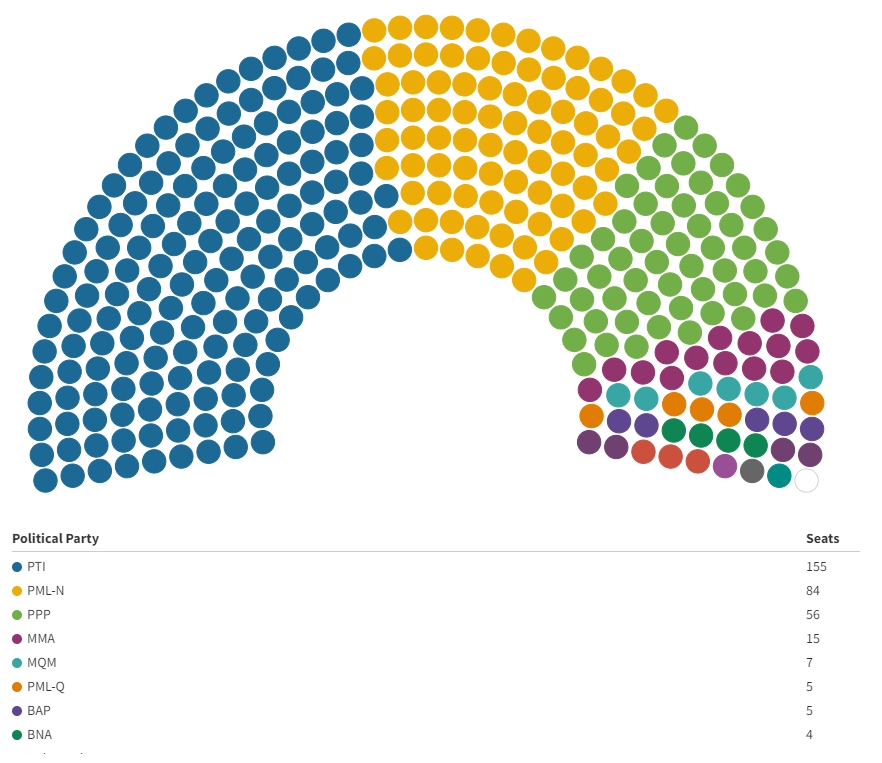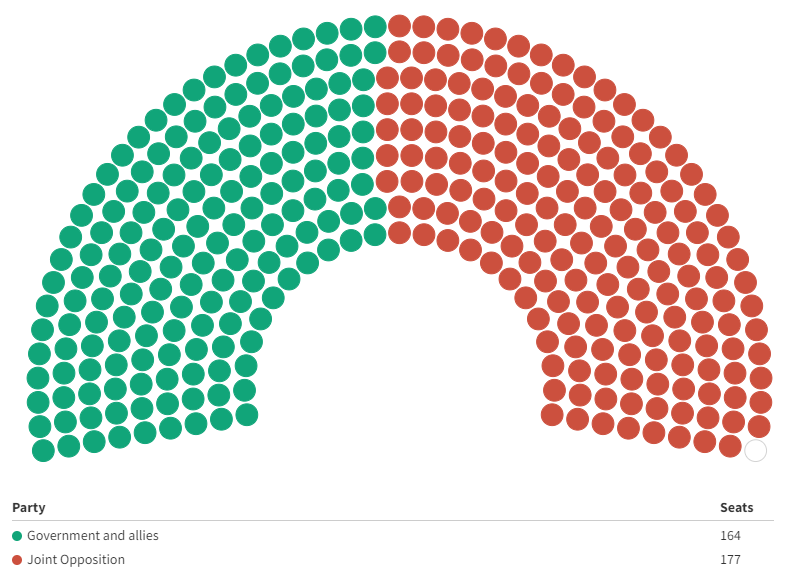Political tensions are at an all-time high ahead of the crucial National Assembly session for the vote of no confidence against Prime Minister Imran Khan.
The joint opposition had submitted a no-trust motion against Prime Minister Imran Khan last month following both the government and the opposition sprung into action to garner support for themselves.
With MQM and two political parties from Balochistan on their side, the opposition claims to have a majority in the lower house. On the looks of it, the joint opposition will have the support of at least 177 lawmakers to oust the government.


Meanwhile, the government banks on a ‘big surprise’ to get them out of situation as the number game falls against him with 166 lawmakers on their side.
PPP Chairman Bilawal Bhutto Zardari however, came with another ‘surprise’ an hour before the voting by submitting a no confidence motion against Speaker National Assembly Asad Qaiser.
Following the no-trust motion against the speaker, Deputy Speaker Qasim Suri will preside the session.
Parliamentarians have begun to reach the National Assembly for the session. Many lawmakers were seen walking from the Parliament Lodges to the National Assembly.
Party chiefs will hold party parliamentarian meetings ahead of the voting.
In an unexpected move, the government removed Chaudhry Muhammad Sarwar from his post as Punjab governor on evidence of his ties with PML-N and PTI’s dissident’s Tareen-group.
Simultaneously, the Punjab Assembly is also going to hold a session to election a new chief minister for the province with a close fight between Hamza Shehbaz and Pervaiz Elahi.
Usman Buzdar tendered his resignation last week following which the PTI announced to support PML-Q leader Pervaiz Elahi’s.
Meanwhile, disgruntled PTI members from the Jehangir Tareen-group announced their support for PML-N’s Hamza Shehbaz.
Foreign conspiracy
Leading up to the day of voting, Prime Minister Imran Khan on a number of occasion said that the no-trust motion against him was the interference of a foreign power which wanted to oust his government.
Taking US’ name the premier said that it was a matter of national security.
He also stated that a memo received from the US used a threatening tone warning of dire consequences if Imran Khan stayed in power.
Turning down resignation as an option, the prime minister, in an earlier interview, said that early elections could be called.




Comments are closed.